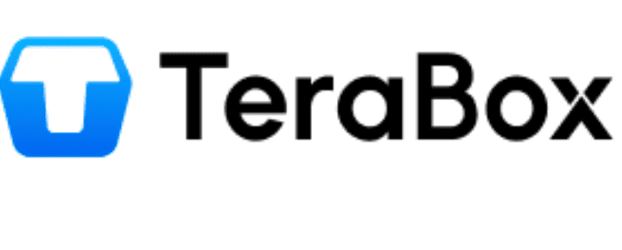The Business Skills Today’s Freelance Engineers Must Master
When you move from a salaried engineering job to freelance work, you take on far more than project delivery. You step into a role where you must manage clients, plan your workload, and organize your operations.
As you adjust to this shift, you understand the importance of clear processes and organized systems for your workload. Many engineers notice this early, especially when projects overlap or client expectations increase. You soon realize that you need a tool to track client details, project updates, and follow-ups clearly.
At this stage, the best CRM software for freelancers helps you organize everything in one place. Once you gain control of your workflow, you can focus more on delivering strong technical work and building a steady business. From here, let’s explore four critical business-skill areas you must master as a freelance engineer.
Client Pipeline & Relationship Management for Engineers
The U.S. engineering services sector remains robust, presenting a clear opportunity for freelancers. For example, IBISWorld reports that the industry’s market size grew by over 1.5% between 2020 and 2025, exceeding $350 billion in 2025.
Likewise, the number of businesses in this domain grew at a CAGR of 1.1% per year between 2020 and 2025, reaching 138k in 2025. What this means for you as a freelance engineer is that demand is increasing, but so is the competition. You cannot rely purely on technical ability or hope for repeat business without a process.
You must build a consistent pipeline by capturing leads, sending proposals, delivering work, and following up with clients. Tracking each stage prevents lost opportunities when you transition from one project to the next. Moxie notes that staying aware of client activity is essential, and instant notifications help you respond to updates quickly.
Set up a simple system to record who contacted you, the project scope, next steps, and whether you secured the work. Regular follow-up and maintaining positive relationships help turn one-off jobs into recurring engagements. This skill of consistent client management is key to transforming freelance engineering from a hustle to a blueprint.
Financial Literacy & Pricing Strategy Beyond Hourly Rates
Freelance engineers often default to hourly billing because it’s easy. However, you need financial literacy and a pricing strategy to build a sustainable practice. You should understand the full cost basis, including the tools, software licenses, business development time, insurance, and taxes.
Then, you can set pricing that reflects value, not just hours. The best strategies focus on maximizing your value, which is why freelancer analysis is important. For instance, Payoneer’s 2023 Freelancer Insights Report reveals that mixing hourly and project-based fees commands a higher average rate.
This method works better than sticking to just one type of fee. The report also shows that 38% of surveyed freelancers increased their hourly rates over the past year. This proactive approach emphasizes the importance of continually monitoring your skills in the market.
Understanding your profit margin means you can identify which services or clients are truly profitable. For example, fixed-price contracts with clearly defined deliverables may carry less risk and offer better margins than open-ended hourly tasks.
Retainer models for ongoing support can smooth income peaks and troughs. Freelancers who treat their business like a company track key metrics, such as revenue per client, repeat business rate, and average margin per project. When you shift from “just get paid” to “get paid well and predictably,” your freelance practice becomes more scalable and less reactive.
Communication & Personal Brand for Technical Freelancers
In engineering disciplines, strong technical skills matter. But it is your ability to communicate and build a brand that will distinguish you. Recent workforce data highlights why communication matters in a competitive market.
Engineering workforce data from DataUSA shows that engineering graduate salaries averaged around $135,500 in 2023. Compared to 2022, the figure increased by nearly 3.3%. This underscores the value assigned to engineers, but as a freelancer, you must also demonstrate business-relevant skills.
You need a clear personal brand that states what you do, who you help, and how you deliver outcomes. In client conversations, avoid technical jargon. Instead, describe results in business terms, such as cost savings, timeline improvement, reliability, and risk reduction.
A simple professional website, case studies demonstrating business impact, and consistent project updates all contribute to your credibility. When you communicate clearly, set expectations accurately, and deliver regular updates, clients feel informed and supported. That builds trust, leads to referrals, and allows you to move from “just another engineer” to “trusted specialist.”
You also benefit when you share work samples that highlight measurable results, because clients want clear evidence of the value you provide. Building this habit strengthens your reputation and supports long-term relationships.
Operations & Workflow Efficiency for One-Person or Small Team Firms
The overall demand for technical talent is high. The Bureau of Labor Statistics expects engineering job openings to increase by over 8.5% over the next decade. This will create nearly 118,500 new job opportunities annually. Specifically, industrial and mechanical occupations will experience rapid growth.
As an independent professional, you can use technology to maximize efficiency and penetrate this growing market. You must stay organized if you want to respond quickly to new project requests, because clients often choose freelancers who show fast turnaround early on.
However, without clear operations, you may find yourself swamped by administrative overhead or burning out. Document your workflow and use simple templates such as an intake form, proposal template, contract, milestone check-in, invoice, and client feedback system. Automating repetitive tasks (for example, invoice reminders or follow-up emails) helps reduce errors and time waste.
When you build operational efficiency, you free up time for higher-value engineering work. Over time, you may bring in subcontractors or build a small team. This step applies only when you have strong workflow discipline. Efficient operations let you scale your freelance practice without adding to your stress.
People Also Ask
1. What business tools do freelance engineers need besides a CRM?
Freelance engineers benefit from tools that simplify everyday tasks. Time-tracking software helps you accurately measure billable hours. Proposal builders speed up quoting. Cloud storage keeps project files accessible anywhere. Task managers help you plan work in smaller steps, so deadlines feel manageable instead of overwhelming.
2. How can freelance engineers improve client retention?
Client retention grows when you deliver consistent communication and predictable results. Sharing brief progress updates shows reliability. Reviewing completed projects with clients helps you understand what worked and what didn’t. Small touches, like remembering preferences or timelines, make clients feel valued and more likely to return.
3. What financial habits should freelance engineers build early on?
Freelancers should track income weekly, monitor expenses monthly, and create a simple savings buffer for downtime periods. Set aside taxes in a separate account to minimize stress. Reviewing project profitability quarterly helps you understand which services bring the most predictable return for your time.
To thrive as a freelance engineer today, you must develop more than technical mastery. You need business skills like managing a client pipeline, understanding finances, persuasive communication, and building efficient workflows. These aspects are key to turning freelance work into a professional, repeatable service.
Pick one of the four skill areas to audit this month, and set a measurable goal that you can track over time. With deliberate action and simple systems, you progress from executing isolated gigs to running a reliable, high-value freelance engineering practice.






